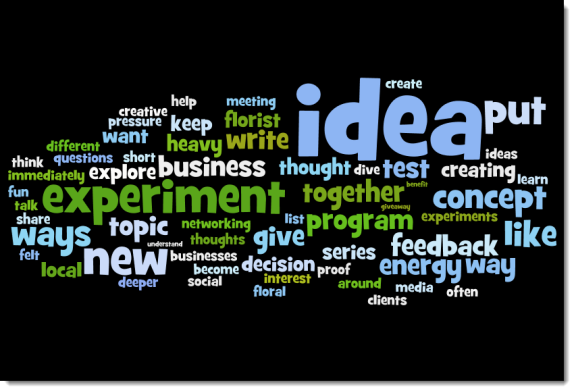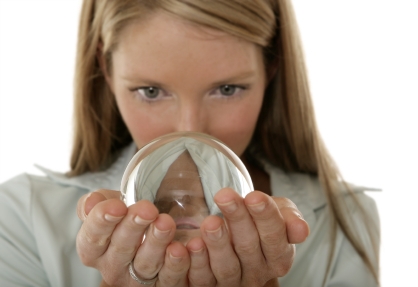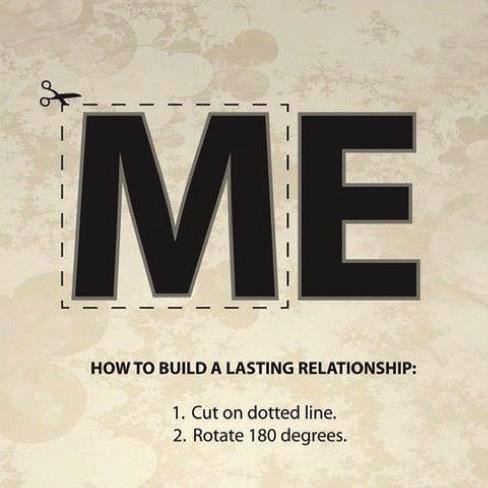What comes first – consumer demand or product development? As we look at the trends that many organizational leaders will be reacting to in 2016, consumer demand and preference potentially trumps products that are on the production line now. Collaboration is also a top priority.
This means that for 2016 change is in the air. It will take good change management strategies with team problem solving and project management to keep up with consumer demand. And it seems that these demands fall short of higher consumption. In fact the opposite is true according to Ford Motor Company’s recent report. Make do. Do more with less. Quality over quantity. Collaborate. Are these the consumer banner songs for the coming year?
Read on.
According to the Ford report:
- Despite recent challenges in the Mid East including the refugee crisis, terrorism and the emerging awareness since the recession that unchecked capitalism is a bad thing, consumers are exhibiting a heightened sense of determination to make the world a better place in 2016 and beyond.
- Using Social Media as a power tool, consumers are shifting to a renewed sense of innovation and ingenuity and self sufficiency.
- New research reveals a growing determination among consumers to become more collaborative, and to leverage technology and sustainability to achieve freedom of travel, and the option to decide where they live, work and play.
The determination to make the world a better place trend
Perhaps the harm brought home by the recession to so many families in the form of layoffs, lost homes, retirement funds and the obliteration of saved college funds has launched a new level of consumer innovation and self-sufficiency. Perhaps for many people under 36 years of age, this is the proverbial “pony in the poop pile”. In late 2015, this age group surpassed the now largest age group the planet has seen — the baby boomers.
So how is this shaping up?
Consumer research conducted in 2015 concluded that this age group’s consumer profile (Millennials born between 1980 – 2000) is more similar to people who survived the Great Depression. The two age groups that come before them are the Baby Boomers (born between 1946 – 1960) and Gen Xers (born between 1960 and 1980).
The Millennial age group grew up with recycling and up-cycling. Many were raised with the scientific proof that global warming is real. A growing number are clean food conscious and have health awareness behaviors that will change US food consumption patterns. For example, some would rather have a black bean and rice burrito than a sloppy old hamburger with genetically modified French fries deep fried in beef fat oozing with hormones and antibiotics.
They also hold another important value. Many believe in making the world a better place and reject buying things on credit for consumption’s sake along with products and services with high carbon footprints. In 2015 it was interesting to note that even though the economy had picked up, consumption was down. Is there a connection beyond market uncertainty that is driving demand or lack of it?
According to the book, The Next America: Boomers, Millennials, and the Looming Generational Showdown, Millennials are well-educated and carry high educational debt loads. They are tech savvy, underemployed and are at risk of becoming the first generation in American history to have a lower standard of living than their parents.
Millennial Values
In a recent Op-Ed by David Brooks of the New York Times, Brooks writes, “If you look at how millennials actually live, you certainly don’t see a progressive counterculture. In fact, you see what you’d expect from a generation that lived through a financial crisis, family instability and political dysfunction. You see an abstract celebration of creative transformation but a concrete hunger for order, security and stability.”
This confirms what we have been blogging for the past three years. The hunger for order, security and stability is an asset for any organization with a collaborative workforce development plan. Eager to learn and be mentored, those HR Directors that bring learning and development back into a workplace that supports transparency can attract a goldmine of new talent.
Millennials like to problem solve and have been taught to do so in teams during their education years. In teams, they have been taught to collaborate and for this reason, the jury is out for me with regard to whether they will experience a lower standard of living. Collaboration is a different paradigm than rugged individualism. Collaboration provides solutions that do more with less. It also allows people to stand out rather than fit in – something that is prized by over half the Millennial’s that contributed to Ford’s four-year data gathering effort.
The role collaboration plays in the Millennial world view
The threat of a lower standard of living could actually corral their energy and initiative to shovel through the poop left by wasteful commercialism to unearth a very unique pony. In fact, they will probably combine their ponies because two ponies can carry a cart with more people on it than riding one pony alone. This is the basic principle of merging synergy with cooperation to form collaborative outcomes.
Plus, for this age group and emerging economic power, it is more fun to progress life’s path in a group that shares similar values and not focusing so much on acquiring things that break or tear the first time they use them. Maybe it is because many of the toys they received as children for Christmas looked shiny but were cheaply made in other countries and broke shortly after unwrapping them. This is a generation of people that learned to distinguish junk as junk.
According to the trends the Ford study reported is a trend dubbed a “Swiss Army Life — This is a rising emphasis on self-reliance and an ethos of purposefulness and utility. Better living today is not about having more things – it’s about living smarter by pushing to get greater use out of fewer things.”
For example, one young woman, age 23, shared during the holidays that she sold her car last year and relies on Portland, Oregon’s superior public transportation system to get around. She used the proceeds from the sale of the car to set herself up close to work and walks most days. Walking gives her time to think and she is saving tons of money not owning a car. She doesn’t view owning a car as a status symbol. She adds that car ownership is a burden for her at this time of her life and not a life enhancing benefit. She thinks it is obscene to pay for gas, a car loan, auto insurance, tires, parking and maintenance and spew green house gasses into the air when her other alternative is to pay cash for her college courses, not incur college loans and walk and jog for health.
Perhaps tough times got the tough going and the direction they are headed is to make a positive difference.
 Using social media as a power tool trend
Using social media as a power tool trend
“There’s no escaping the impact the rapid pace of technology has on culture”, said Sheryl Connelly, Ford global trend and futuring manager. According to the reports findings:
- Consumers are eager to spread good news and are more likely to share positive stories on social media. Platforms such as Trip Advisor draw stark lines of comment when hospitality service falls short of expectation.
- Members of an expanding aging population are proactively seeking to prolong their quality of life and personal freedoms and use social media to connect with family and friends.
- While innovation is driving new ways to enhance quality of life, demands for connectivity and time are increasing, resulting in a society that is always on-call.
- Efficiency and utility are the hallmarks for how we are now living and consuming. With Americans spending nearly five hours per day on their mobile phone, consumers are looking for ways to be less mind-full and more mindful, living smarter and pushing to get greater use out of fewer things.
Meantime, more than 10,000 Baby Boomers are retiring every single day, most of them not as well prepared financially as they’d hoped. It is interesting to watch collaborations and non-institutional mentorships forming in the Social Networks between the tech savvy Millennial group and the graying population — especially when they share the value to make the world a better place.
With regard to gaining more utility out of fewer things, many Millennials stream television programs onto their cell phones and lap tops and watch week old programs with out commercials and are teaching their greying parents and grandparents to do the same. The thought of purchasing a TV for one purpose doesn’t make sense when an iPad can become a TV when desired.
The determination to become more collaborative trend
According to the Ford Report, collaboration is trending for 2016. Ford’s predictions include:
1. Embracing Heroes
Where goodwill is faltering among established leadership, it’s gaining with communities and individuals who are rethinking what it means to be a good citizen, neighbor and person. Everyday heroes are stepping up to the plate, and they’re inspiring others to do the same.
2. Doing More With Less
A rising emphasis on self-reliance has created an ethos of purposefulness and utility. Better living today is not about having more things – it’s about living smarter by pushing to get greater use out of fewer things.
3. Full-service Technology
With growing support from artificial intelligence, the rise of full-service technology allows for outsourcing more responsibilities to innovative consumer features that learn and adapt to our needs – expanding our sense of hope and possibilities for better living.
4. Mindful Goes Mainstream
Two-thirds of consumers across the globe say mindfulness is not a fad. As our lives become increasingly complicated and demanding, the way forward many people are embracing is to be less mind-full and more mindful – giving ourselves time and space to breathe, reflect and regroup.
5. In Awe of Aging
As people live longer, healthier lives, the notion of aging is being redefined. Shifts in health care, nutrition and medical science are driving today’s seniors to reject long-held stereotypes of what it means to be elderly.
6. Fit for Misfits
Today, one size fits nobody, and connections between mainstream brands and consumers are taking a back seat to unique, more personalized and meaningful ties.
7. Waste Not, Want Not
In a high-consumption society, innovators are getting creative with extracting value from stuff nobody wants. This sustainability trend promises to push the boundaries of people’s imagination and resourcefulness.
8. Buying into the Flexible Economy
Once exclusively the turf of creatives, freelancing is becoming increasingly normalized – and it’s upending how we produce and consume goods and services.
From a transportation approach, the trends point to a heightened focus on collaboration and mobility as a means to develop new ways to address the complexities of urban transportation, global gridlock and increased connectivity among consumers. Nearly 75 percent of adults worldwide say greater mobility is important for global stability.
So, if change is in the air for 2016 and beyond, it is time to take inventory of your change management strategies and team development competencies. Competencies that build group norms that produce tolerance for not knowing what you do not know is the first step. This means that for 2016 change is in the air. It will take good change management strategies with team problem solving and project management to keep pace with trends.
Copyright TIGERS Success Series, Inc. by Dianne Crampton
 About TIGERS Success Series, Inc
About TIGERS Success Series, Inc
TIGERS Success Series is a Bend, Oregon Leadership and Team Improvement Consultant that helps committed leaders build more cooperation among employees and collaboration between departments for improved growth and revenue.
We do this by deploying the TIGERS team process that improves workforce behaviors that are anchored by trust, interdependence, genuineness, empathy, risk resolution and success. Providing diagnostics andcustomized team interventions, you can improve both work culture and transform your adequate teams into exceptional ones. We also license and train HRD Executives, Project Managers, Managers, Trainers and Team Consultants in the use of our award winning resources. For more information, call 1+ 541-385-7465.

